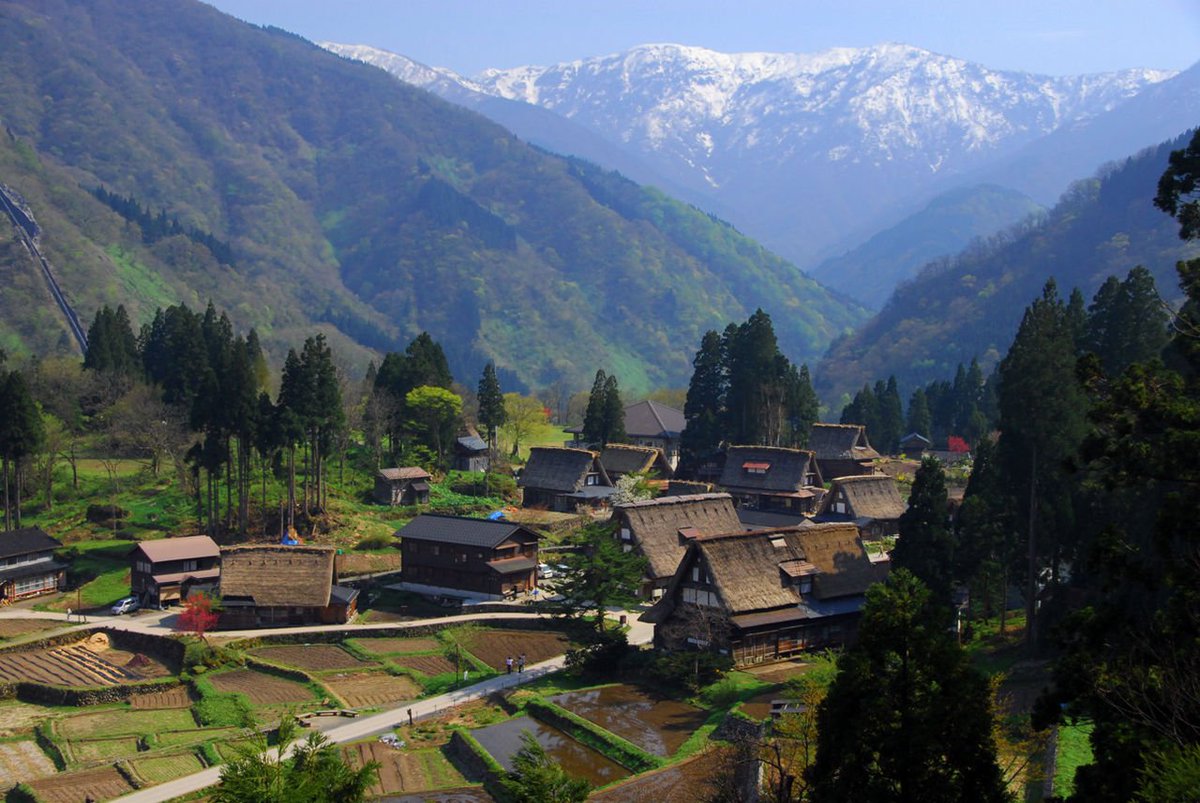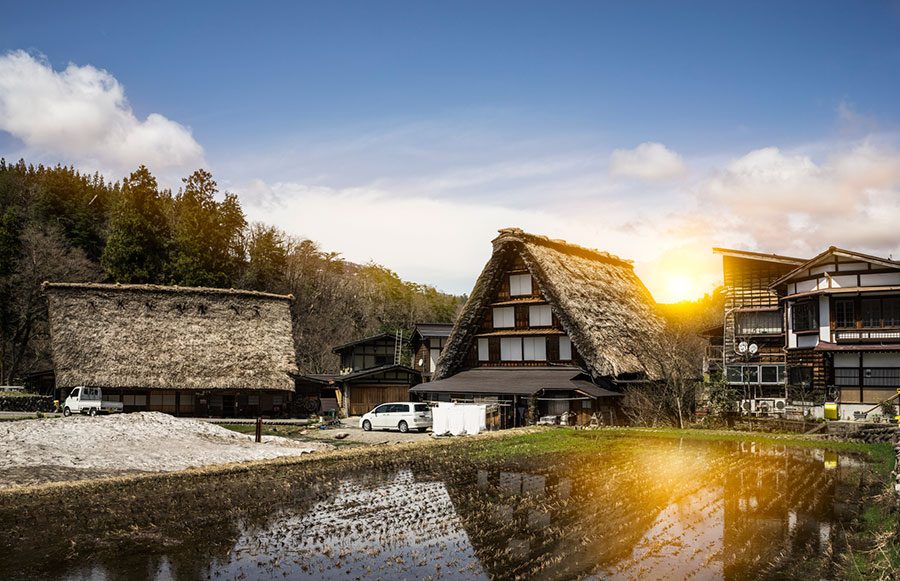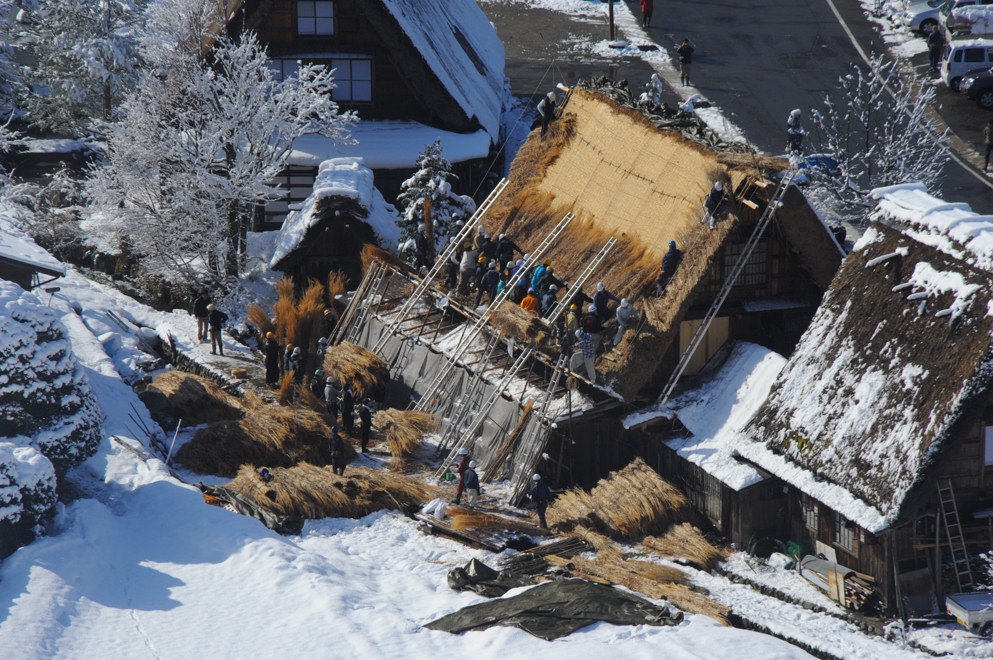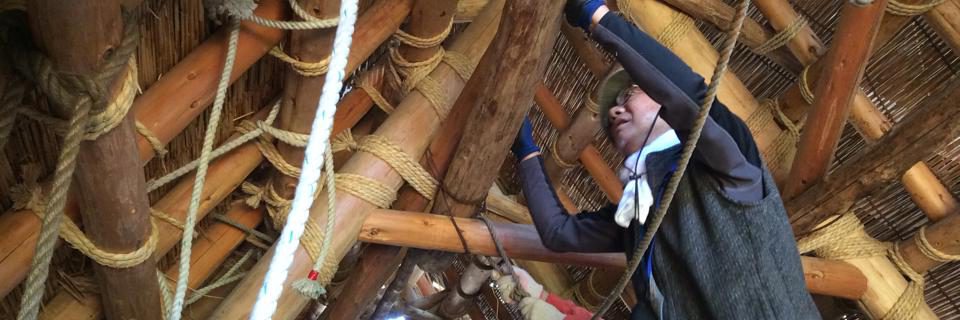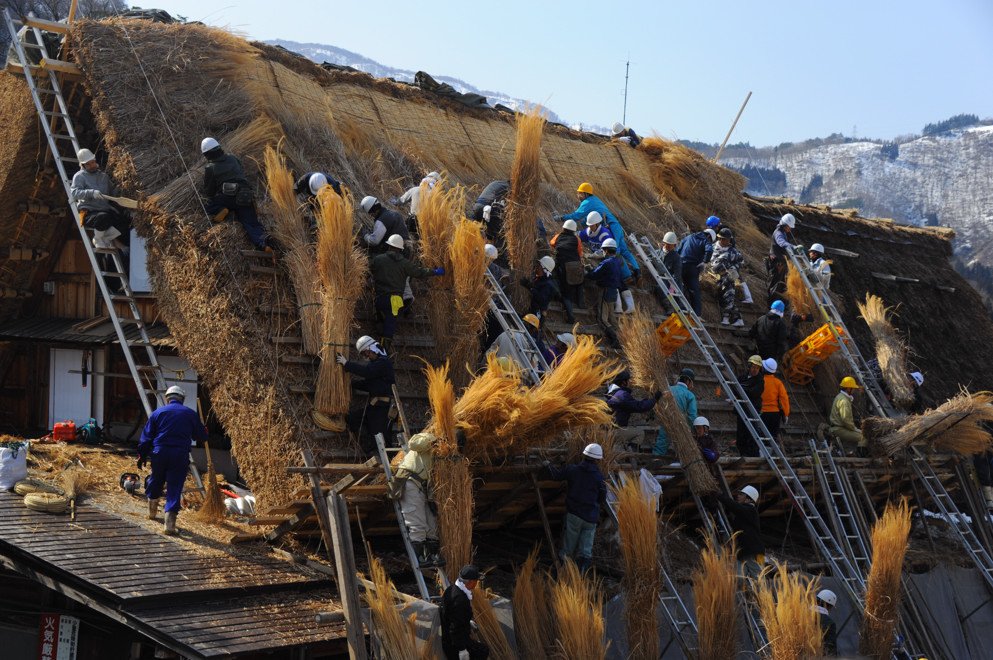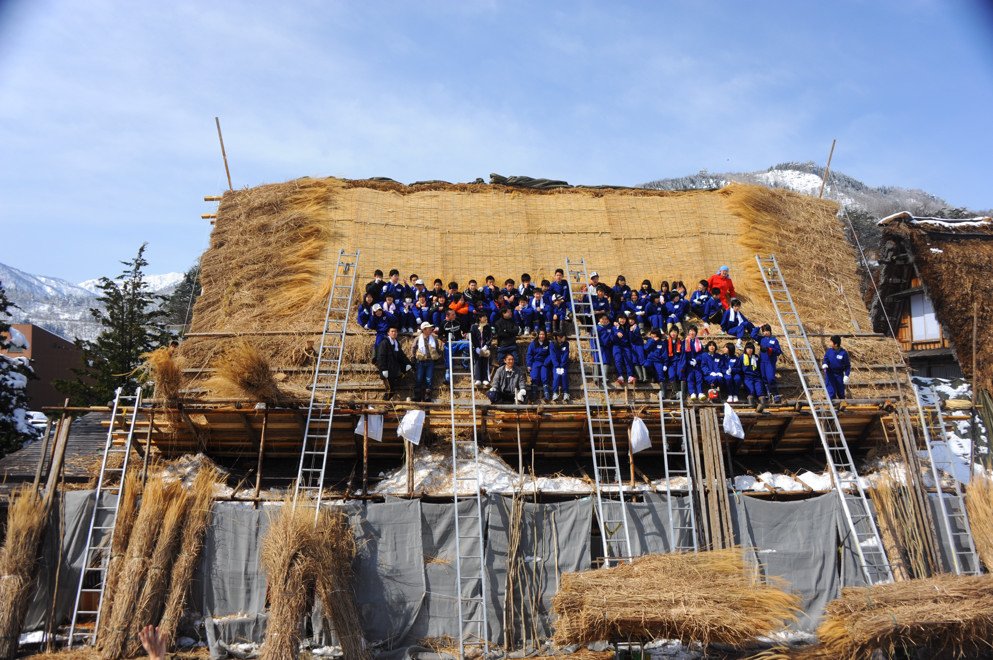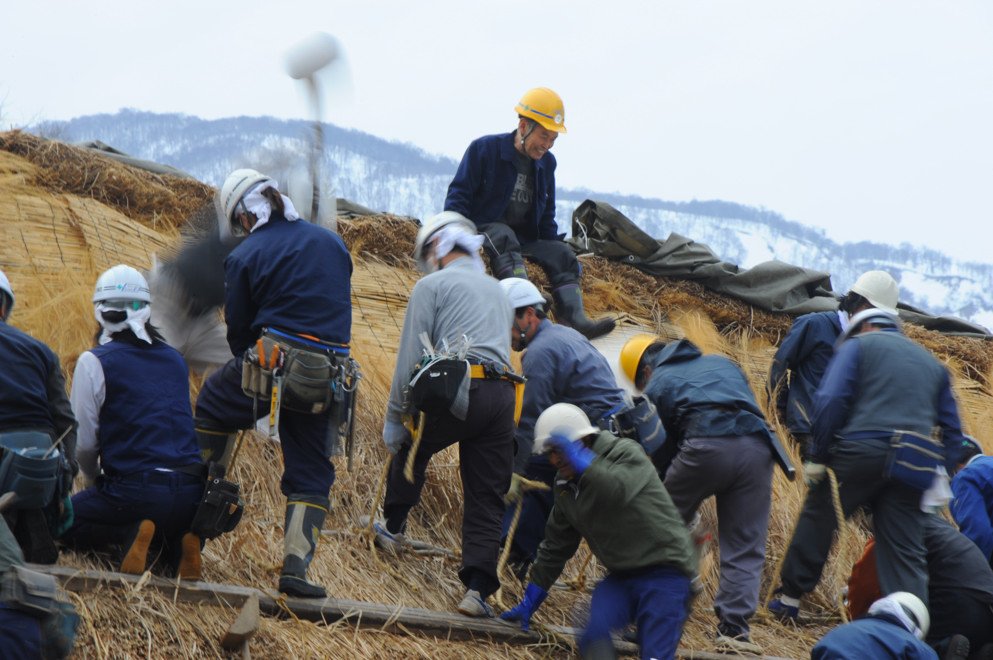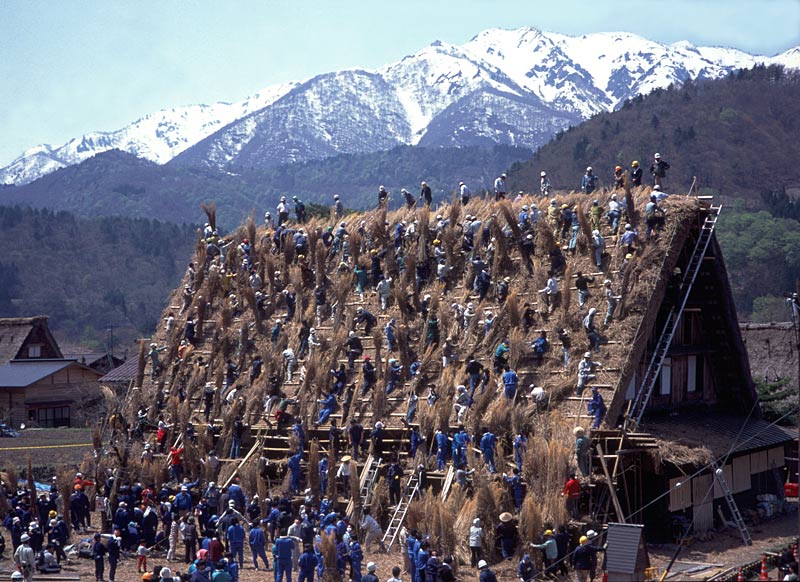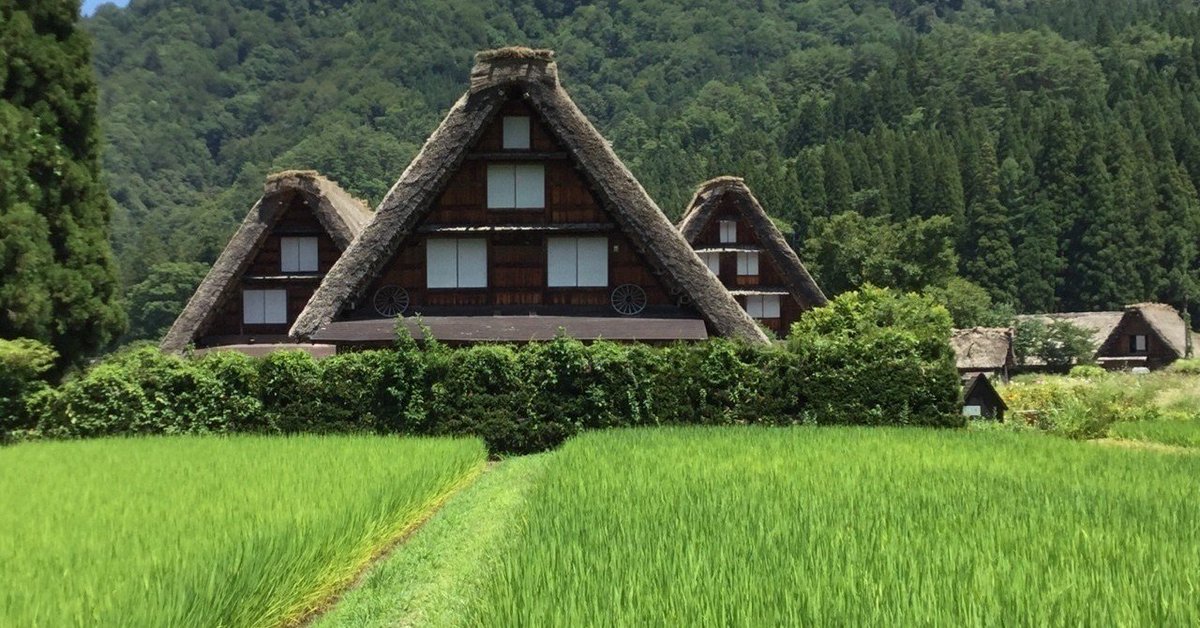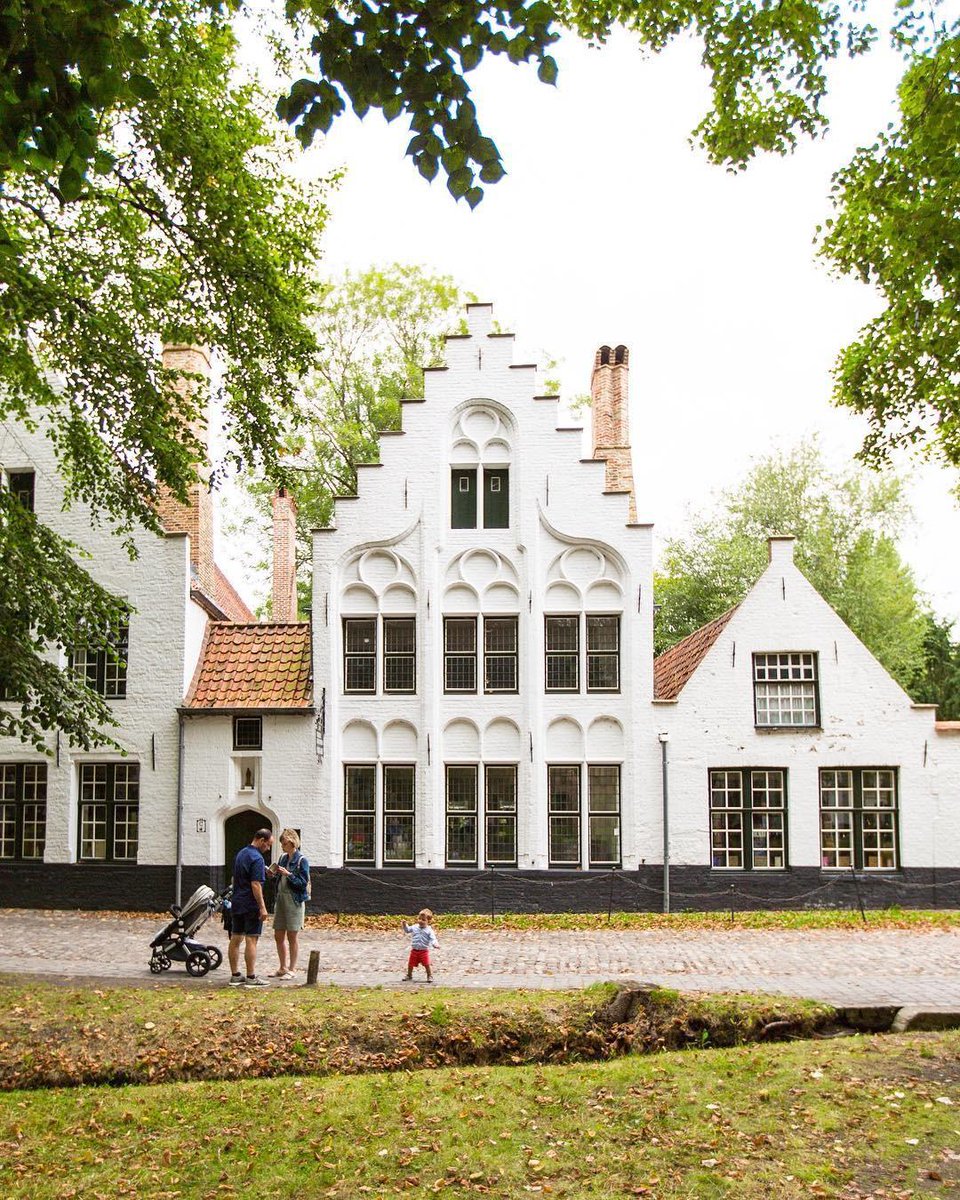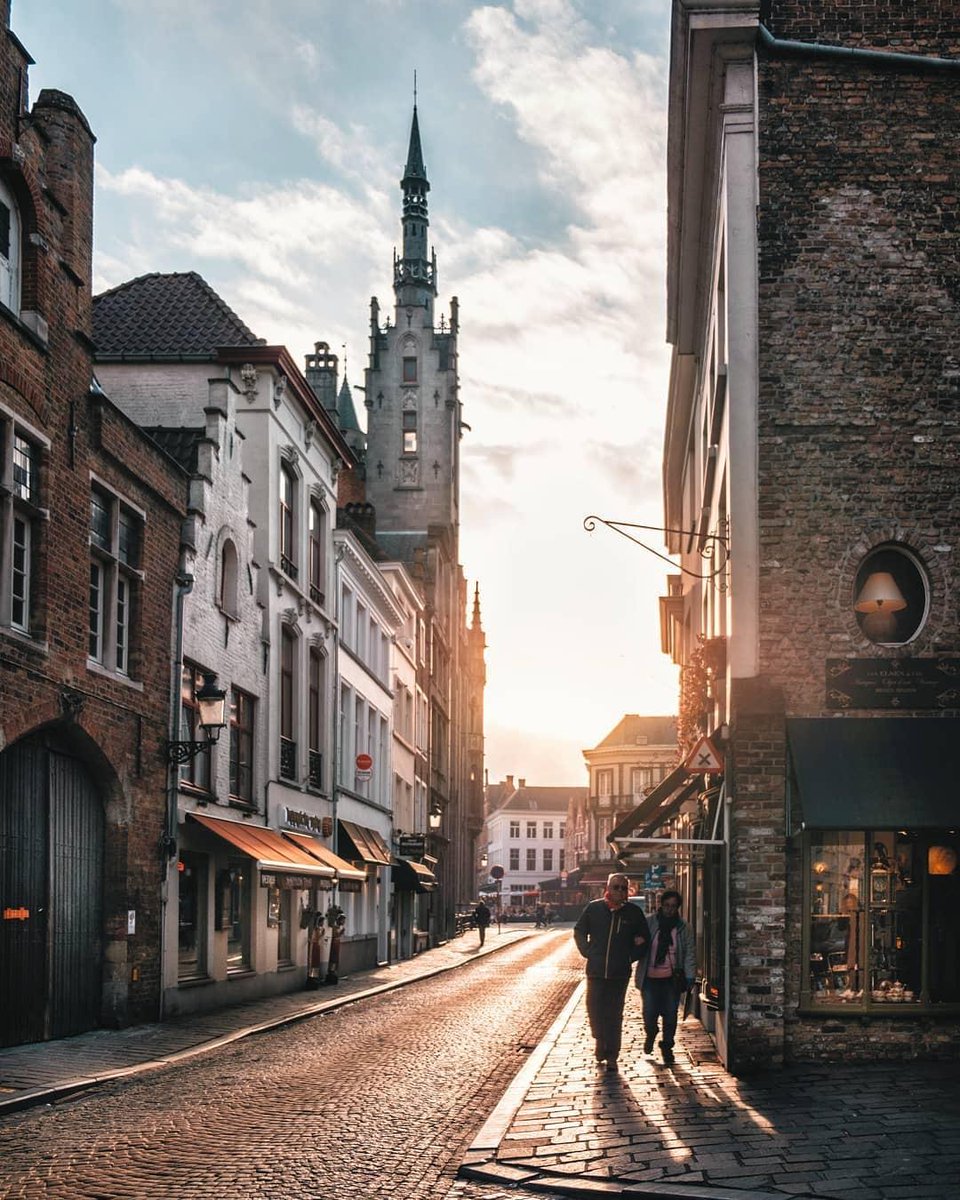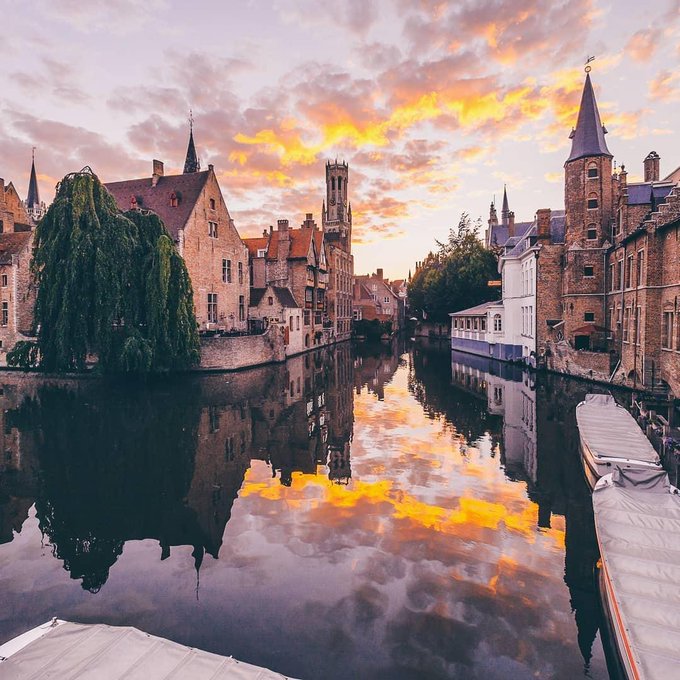While most of the developed world has lost the ability to make decent towns or cities, the famous thatched roof villages of Japan show how we might be able to rediscover the lost knowledge of place making: through cooperative labor and organic hierarchy, a system called Yui (結).
These villages are defined by the characteristic village houses, of which the roofs are the most important part. These massive thatch roofs, each weighing several tons are still built, owned, and maintained by the villagers themselves, outside of the money economy, mortgages etc.
The roofs are rebuilt once every 30 years with a day spent on maintenance yearly. When a roof needs to be worked on the villagers will gather voluntary to help, lead by the most skilled thatcher in the village. You can see him in this photo, wearing a red coat on top of the roof.
The head of the work team will direct and oversee the labor force, recognizing skill and talent by awarding added responsibilities, keeping an eye out not only for the work at hand, but also making sure that the skills needed will be passed on to the next generation of villagers.
By following in the footsteps of their ancestors and working together from childhood it is not necessary to resort to elections or ideology to decide who will lead the work that is vital to the village. The ablest and most reliable man will eventually rise to the top, pass it on.
If each villager worked alone it would be impossible to build these roofs and the harmony of the village would collapse as each man would build only what he was able to afford or borrow himself. The village would lose its character and cohesion; it would lose its independence.
By skimping or not volunteering the uncooperative villager would not find any help when his own roof needed repairing, so the system is as anti-fragile as the material used in the roof itself, thatch grown on common land, reaped and stored collectively in the same system of Yui.
The system of Yui survives in pockets even in the big Japanese cities. The street where I live for example is privately owned. This means it is perfect. Every family living on it cooperates in keeping it spotless and in return the owner repays us with his homegrown vegetables.
To summarize: one reason we have lost the ability to make decent towns or cities is that we no longer know how to work together. No meaningful work can now take place outside of the money economy, and we are unable to recognize or allow the necessary organic hierarchy to form.
The civilization we enjoy today has its roots in the medieval world, a period where men learned to work together and organize themselves without relying on force (slavery or oppression), in towns and villages. With a few holdouts this medieval world has now died out.

 Read on Twitter
Read on Twitter